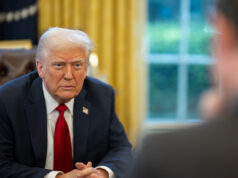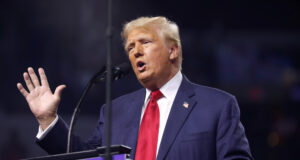On Monday morning, President Donald Trump signed a sweeping executive order aimed at dramatically lowering prescription drug prices in the United States. At the center of the order is a “most favored nation” (MFN) pricing policy, which mandates that the U.S. pay no more for medications than the lowest price paid by any other country. Trump claims the initiative could cut drug prices by 30% to 80%, potentially saving American taxpayers trillions of dollars.
The MFN policy revives a proposal from Trump’s first term and targets the longstanding disparity in drug costs between the U.S. and other nations. The order also directs the Department of Health and Human Services to begin broad drug price negotiations, while introducing measures to combat anti-competitive practices, expand drug imports, and scrutinize the role of pharmacy benefit managers (PBMs).
“What’s been happening is, we’ve been subsidizing other countries throughout the world,” Trump explained at a White House signing ceremony, calling Monday’s action one of his “most important orders.”
“Some prescription drug and pharmaceutical prices will be reduced almost immediately by 50 to 80 to 90%, he added. “Big Pharma will either abide by this principle voluntarily or we’ll use the power of the federal government to ensure that we are paying the same price.”
The policy is a revival of Trump’s signature “most favored nation” drive from his first term, with a new push to get foreign countries to take on more of the research and development (R&D) costs that experts say America has disproportionately shouldered.
“Our Country will finally be treated fairly, and our citizens Healthcare Costs will be reduced by numbers never even thought of before,” the president previously promised on Truth Social Sunday. “The United States will save TRILLIONS OF DOLLARS.”
The announcement triggered immediate market reaction, with shares of pharmaceutical giants like AstraZeneca and GSK seeing declines. Industry leaders have warned the policy could stifle innovation and competition, arguing it may disincentivize research and development.
Although the Biden administration previously took steps to lower drug prices through the Inflation Reduction Act, Trump’s executive order takes a more aggressive approach by linking U.S. prices directly to global lows.
However, the new policy is expected to face significant legal and logistical hurdles, particularly due to the complexity of the U.S. drug pricing system and the opaque nature of international pricing mechanisms.






